US AND THEM
Common Ground. Literature from Southeast Europe
#commonground #traduki #wirundsie
SEE YOU NEXT TIME!
The Leipzig Book Fair 2023 takes place 23- 26 March 2023.
This year, Common Ground – Literature from Southeast Europe is for the third and final time the Region in Focus at the Leipzig Book Fair. Unfortunately, and to our great dismay, the Leipzig Book Fair 2022 has been cancelled. But, nevertheless, our programme featuring books, authors, music and films will be presented in a slightly altered fashion in Leipzig as well as online under this year’s motto “US AND THEM”.
Our famous Balkannacht and the Balkan Film Week will take place as usual at the UT Connewitz in Leipzig. In addition, fascinating talks with authors will be taking place in Leipzig and online.
Participants
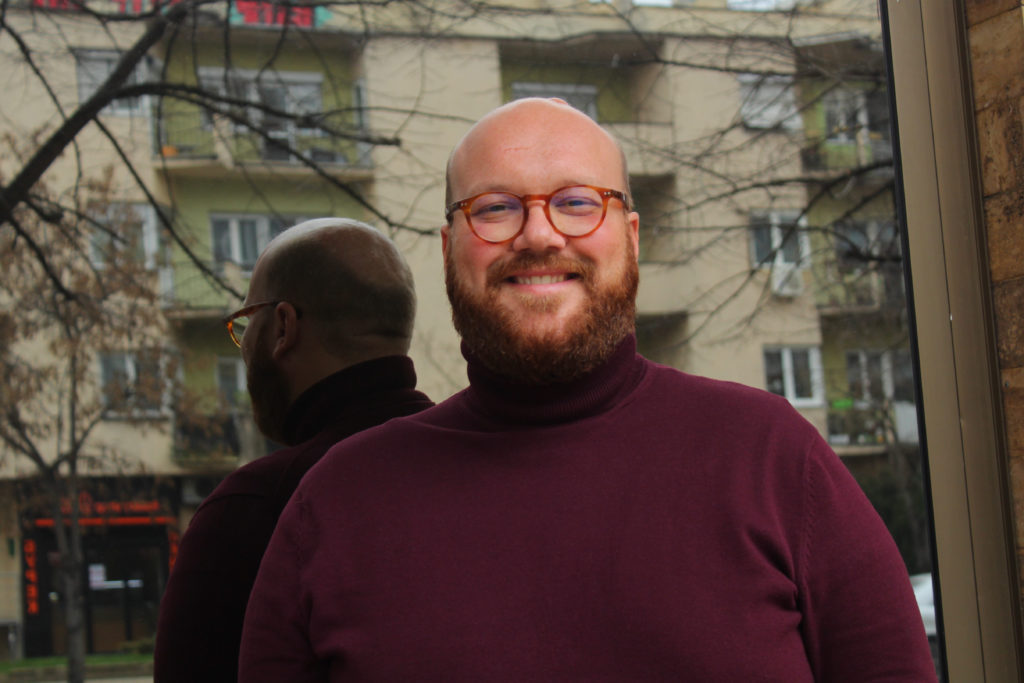
Petar Andonovski
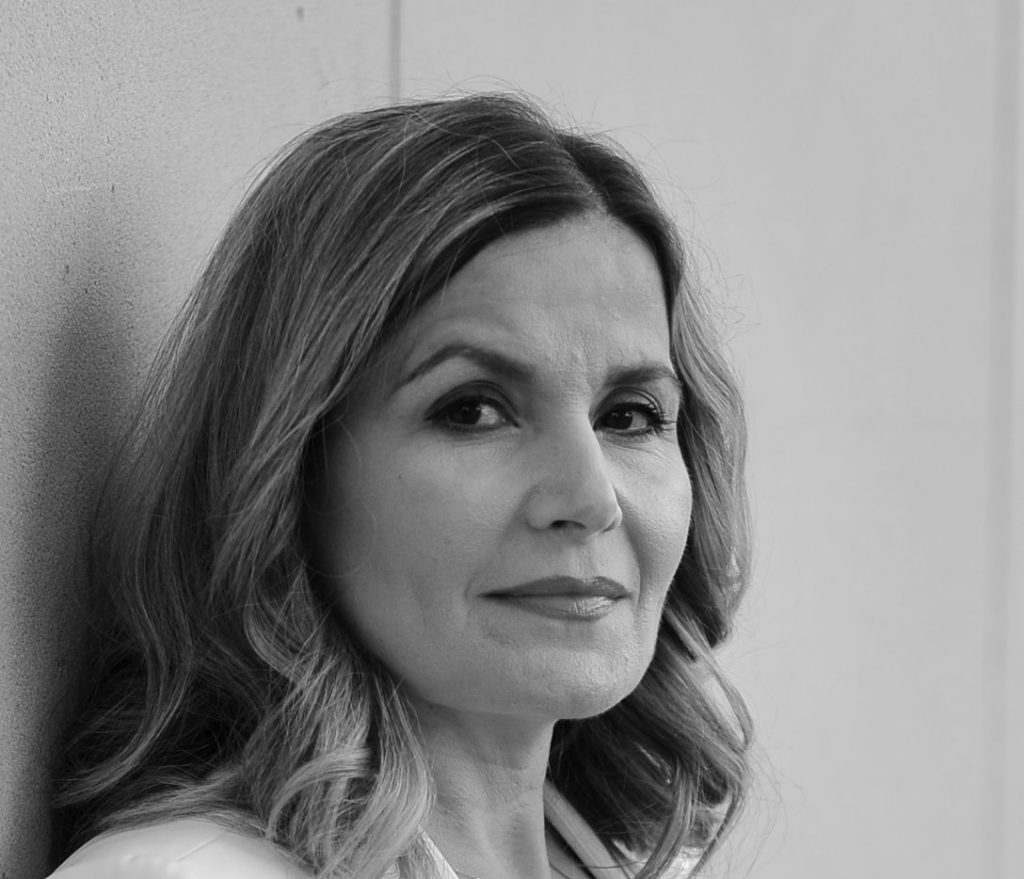
Lindita Arapi

Ralf Beste
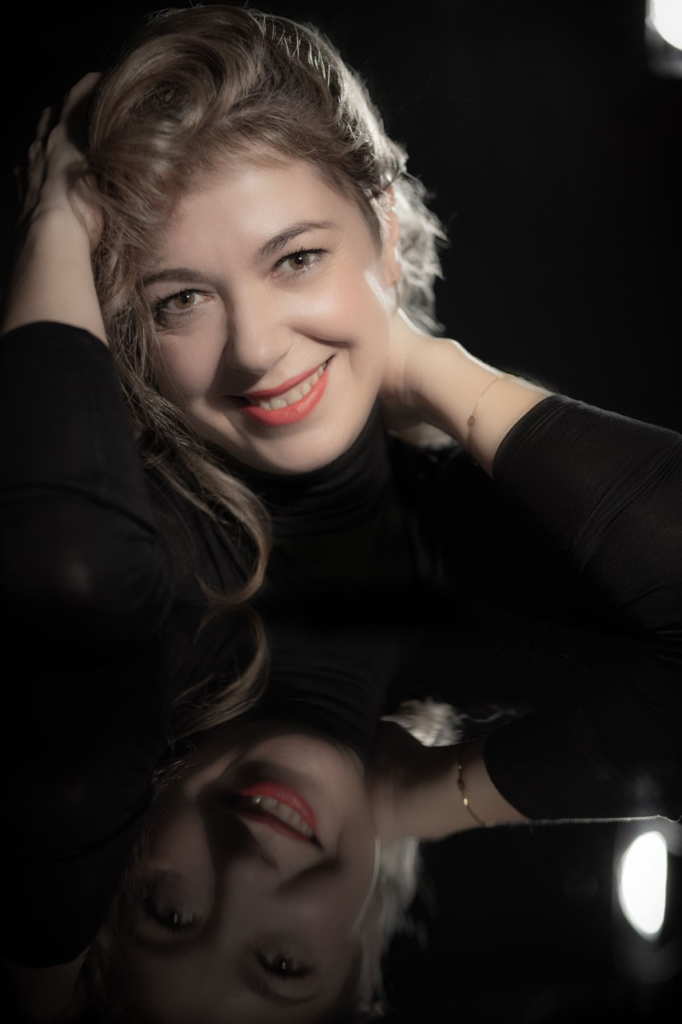
Ivana Bodrožić
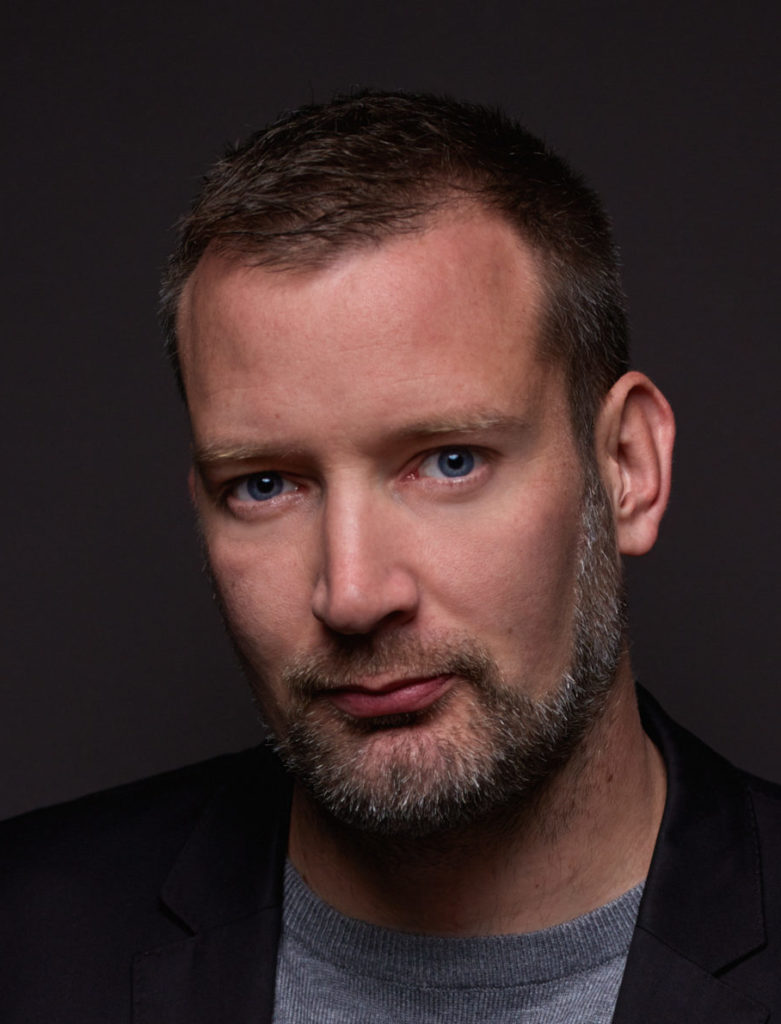
Stefan Bošković
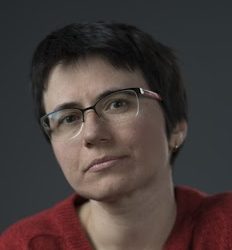
Lavinia Braniște
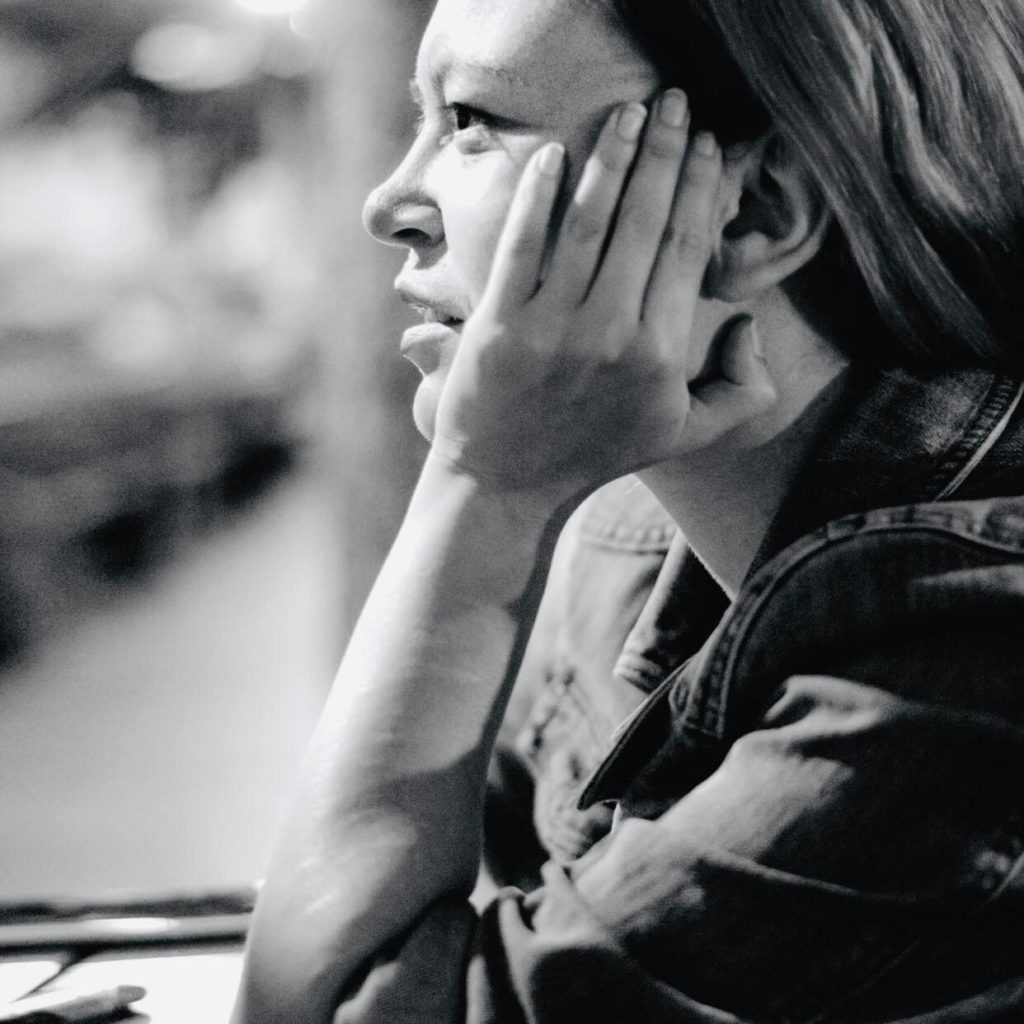
Marianna Georgieva
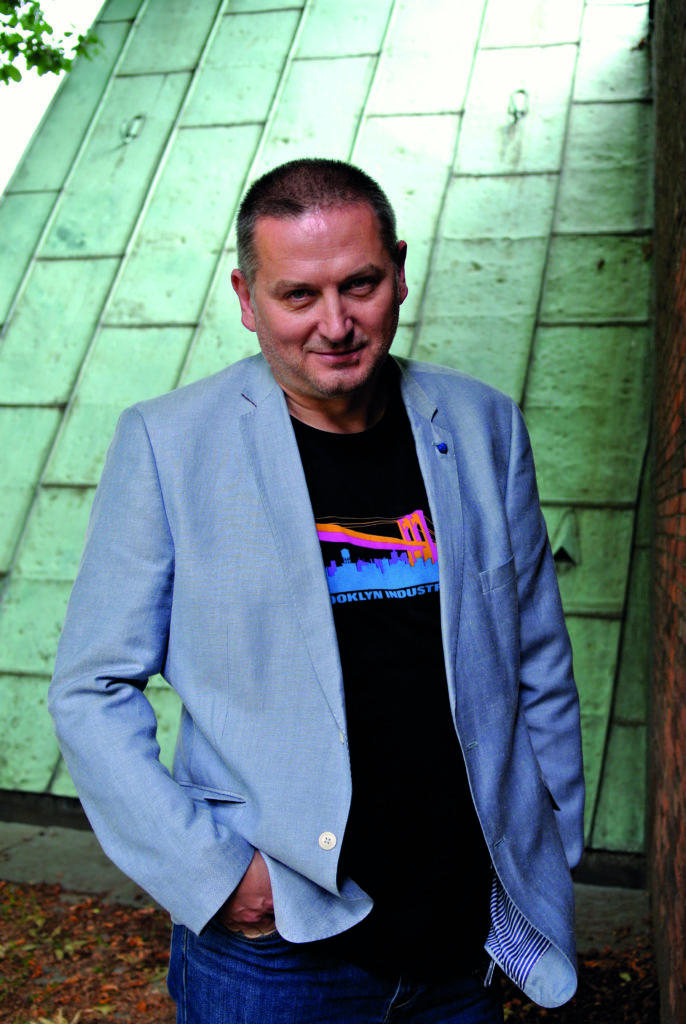
Georgi Gospodinov
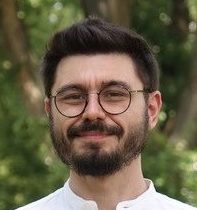
Ismar Hačam
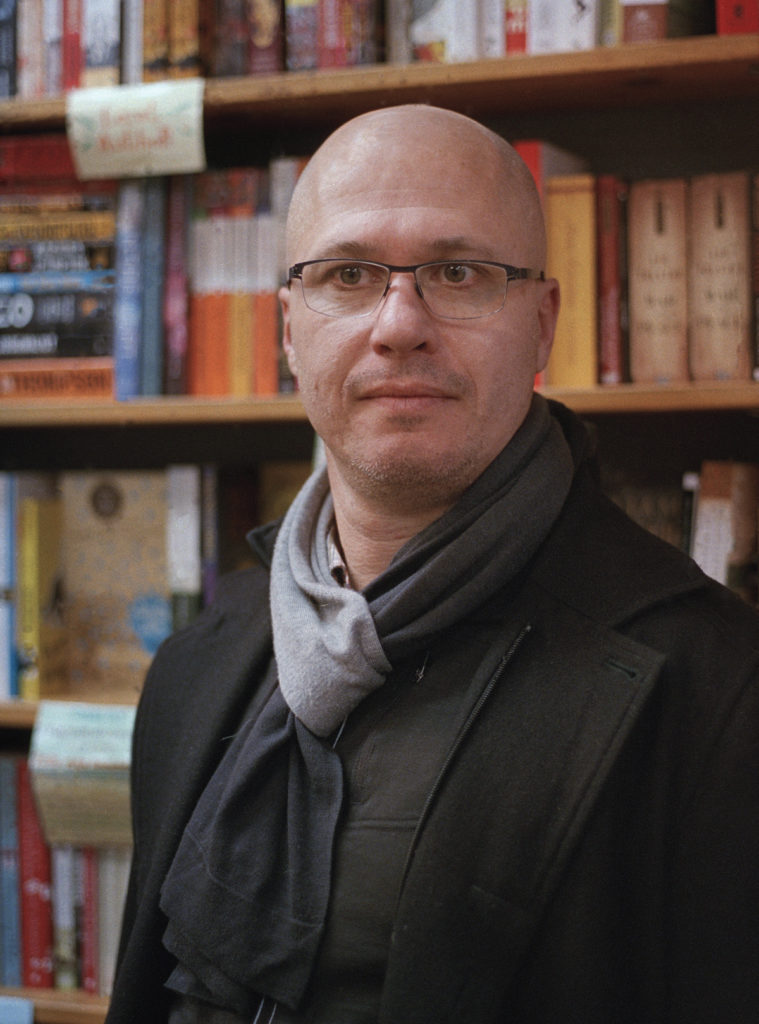
Aleksandar Hemon
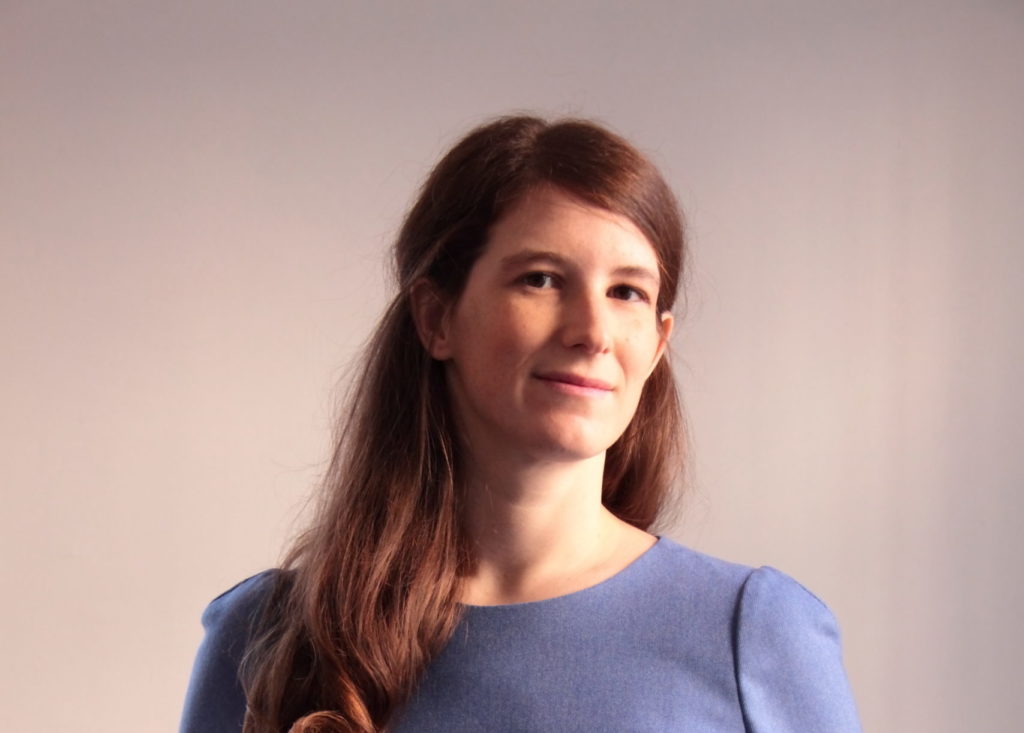
Nataša Kramberger
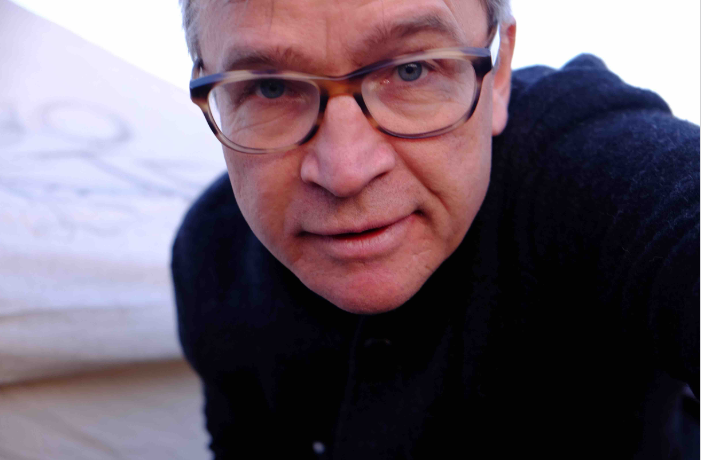
Ulrich Ladurner
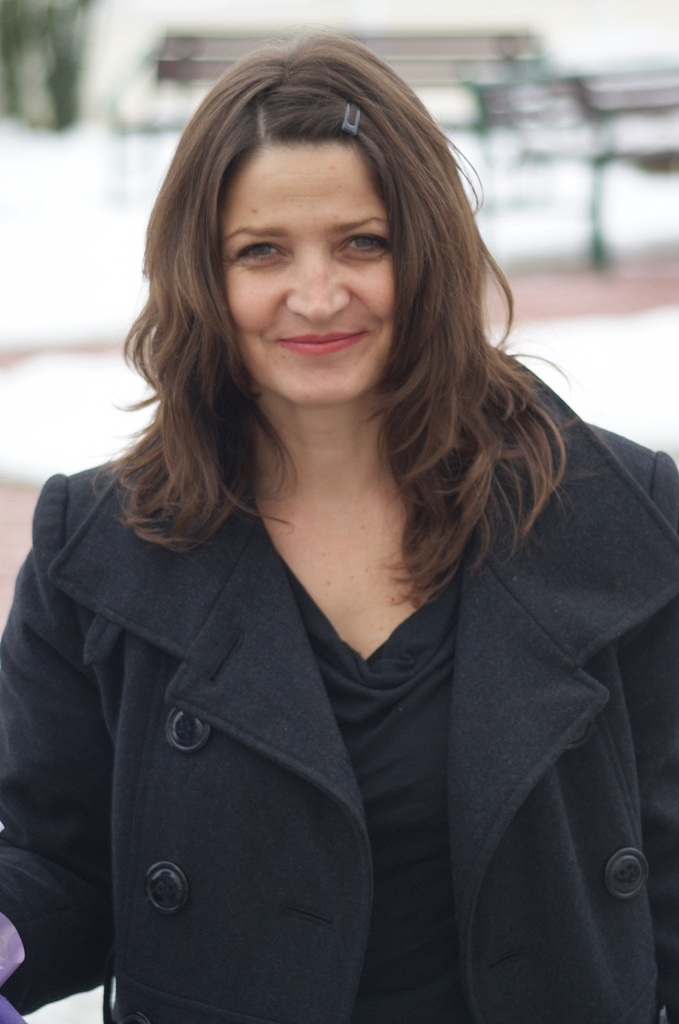
Luljeta Lleshanaku

Norbert Mappes-Niediek
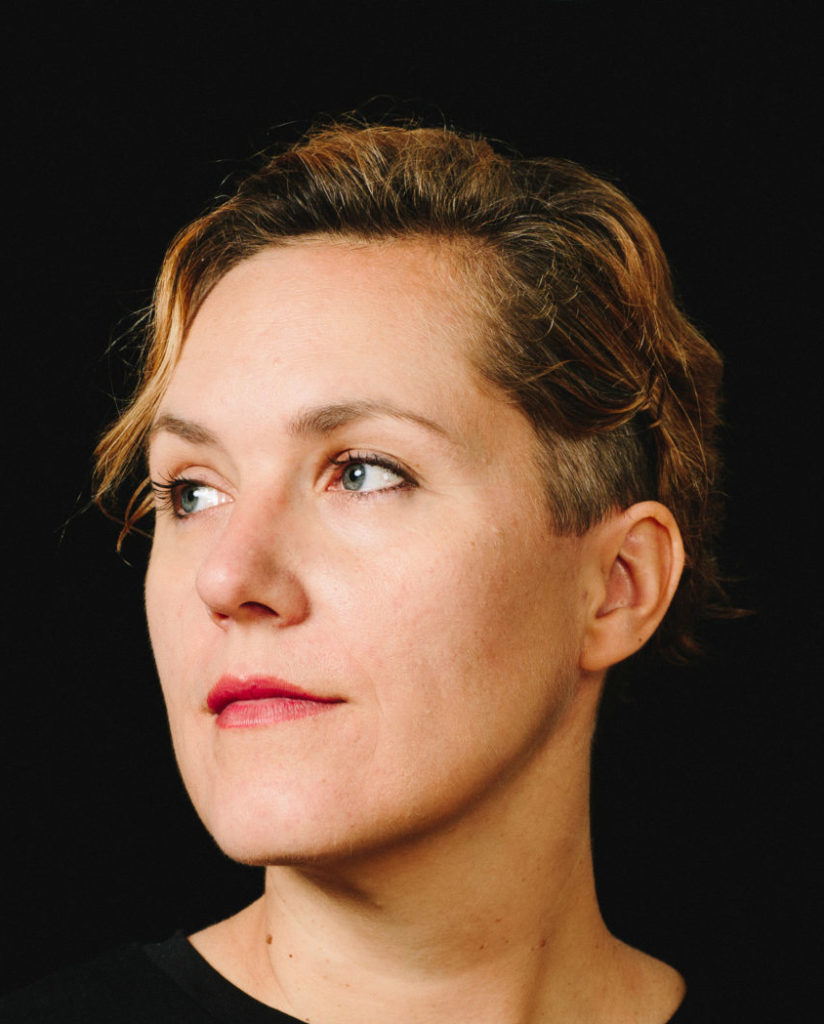
Barbi Marković
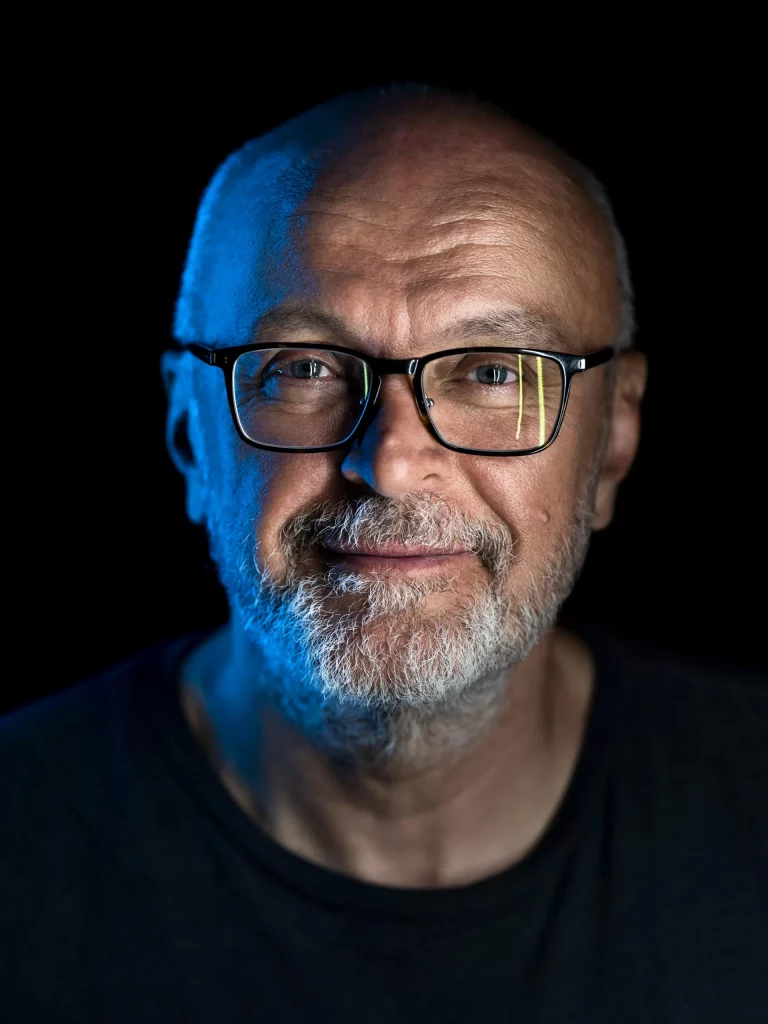
Miha Mazzini

Pantaloons

Radmila Petrović
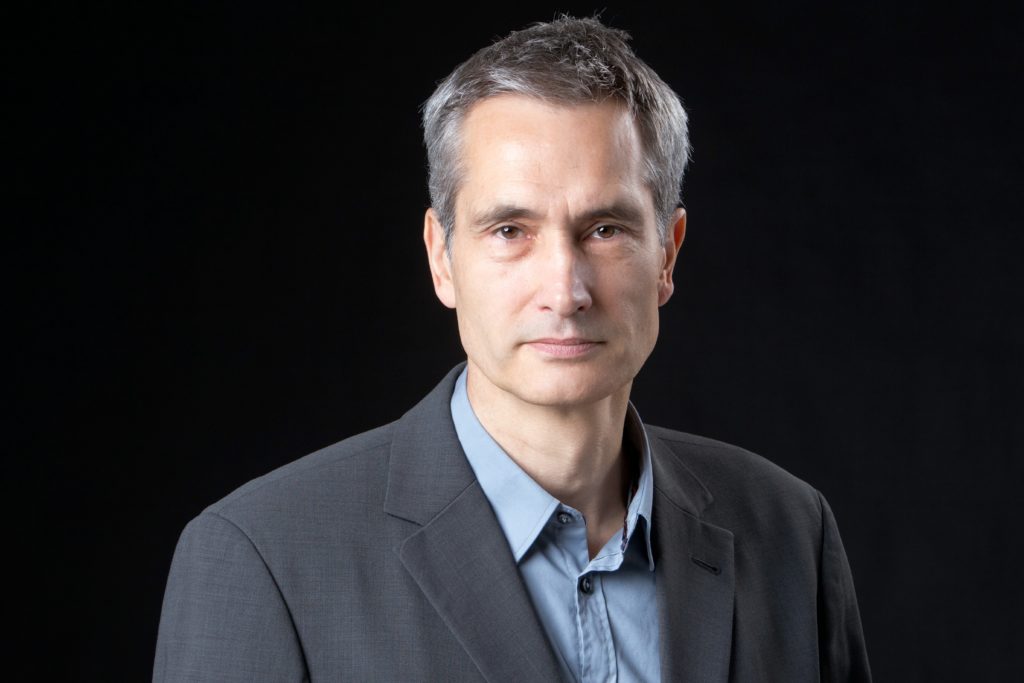
Jörg Plath
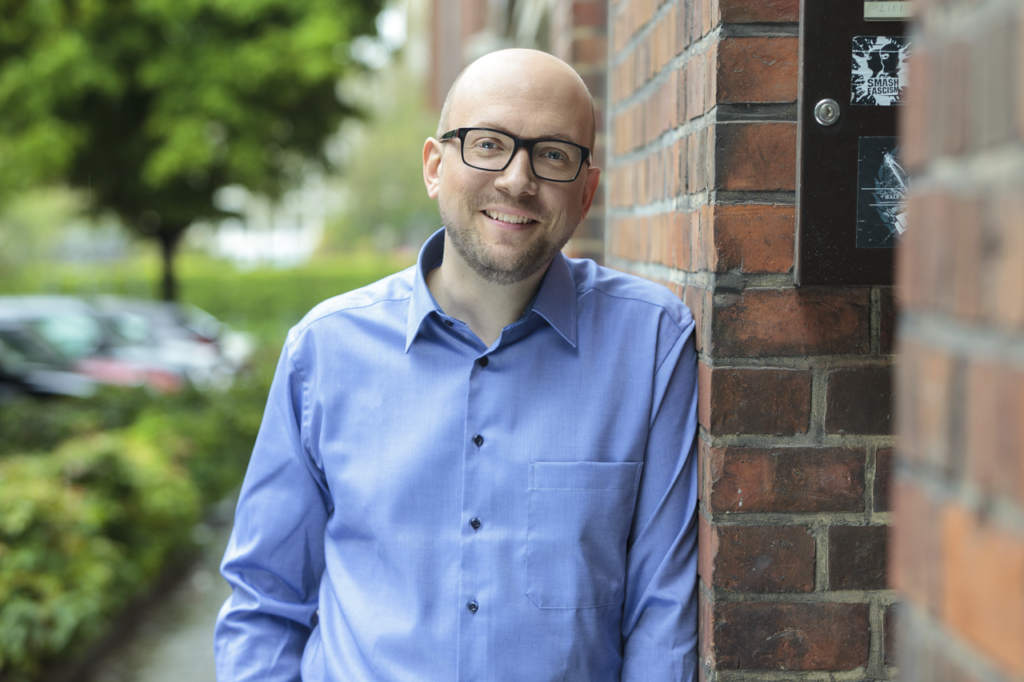
Manuel Sarrazin

Tino Schlench
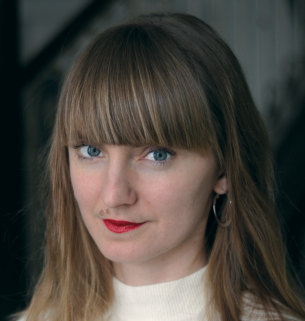
Ana Schnabl
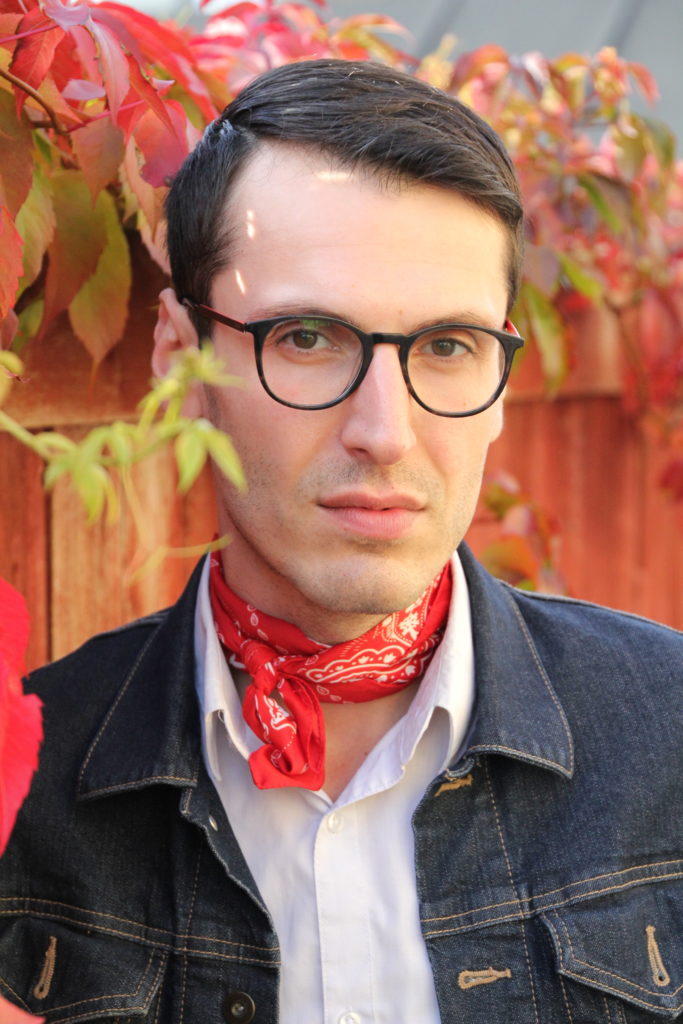
Pajtim Statovci
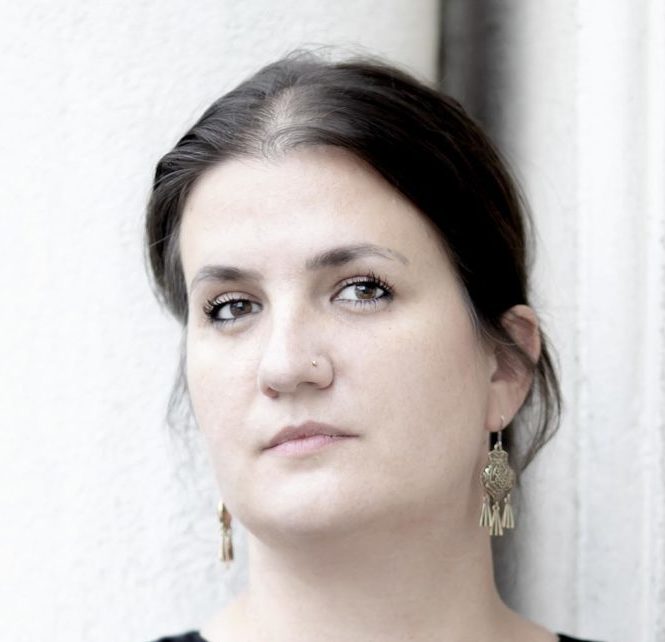
Hana Stojić
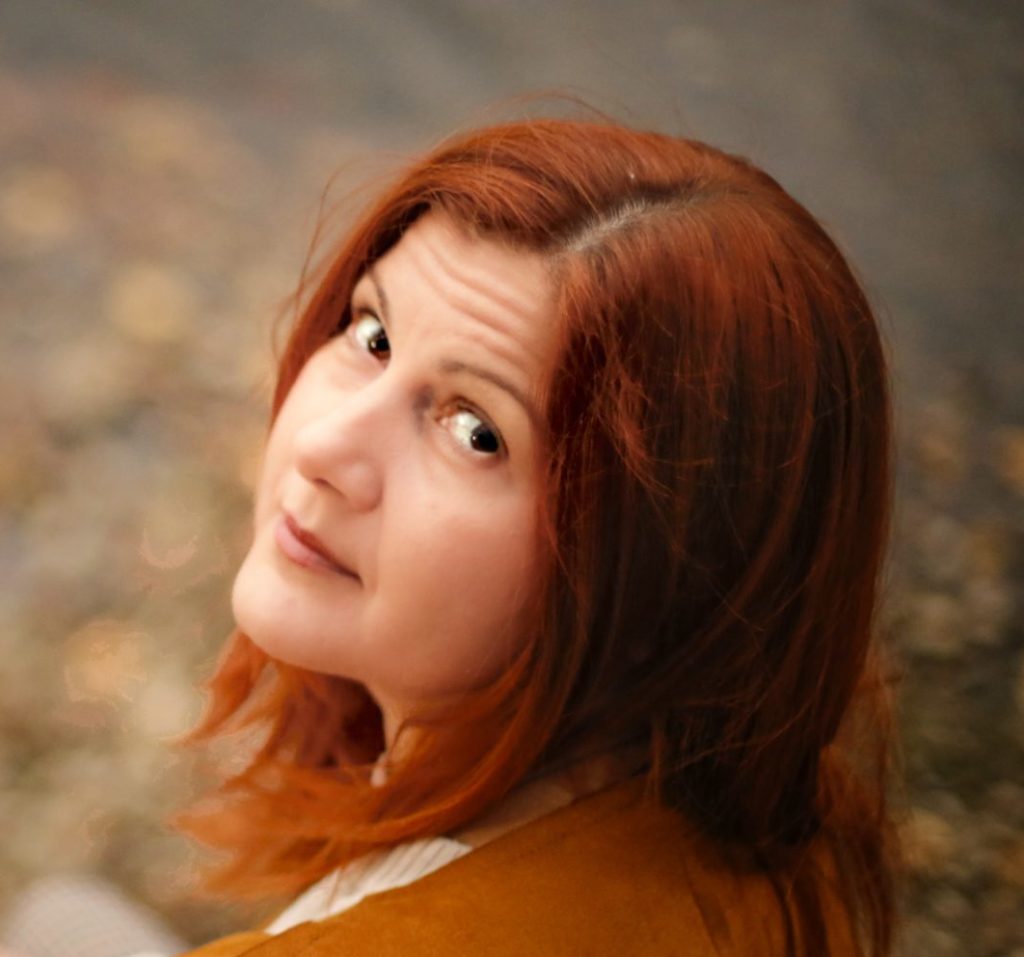
Tanja Stupar Trifunović
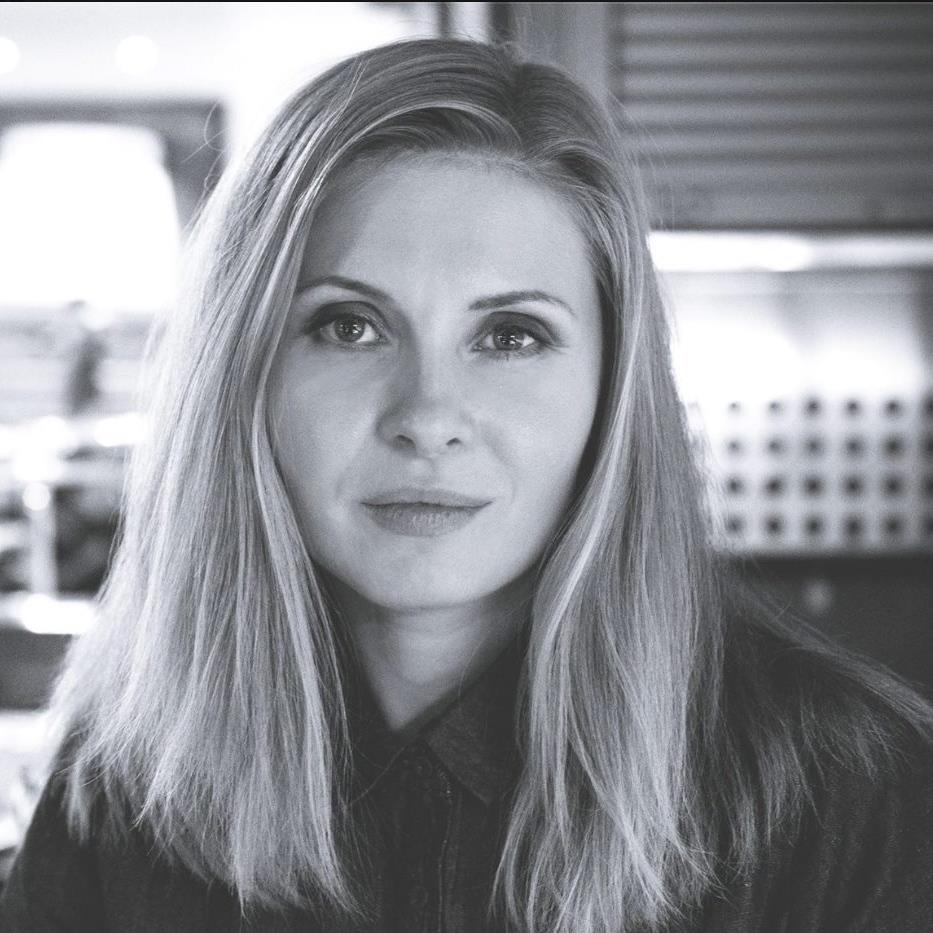
Tatiana Țîbuleac
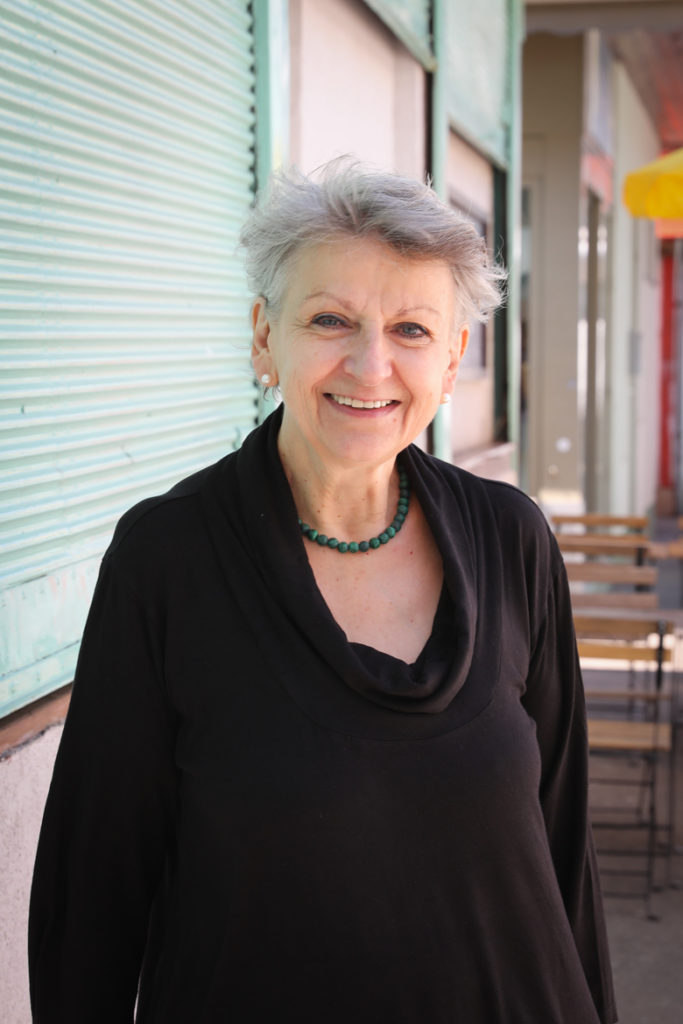
Annemarie Türk

Team US AND THEM
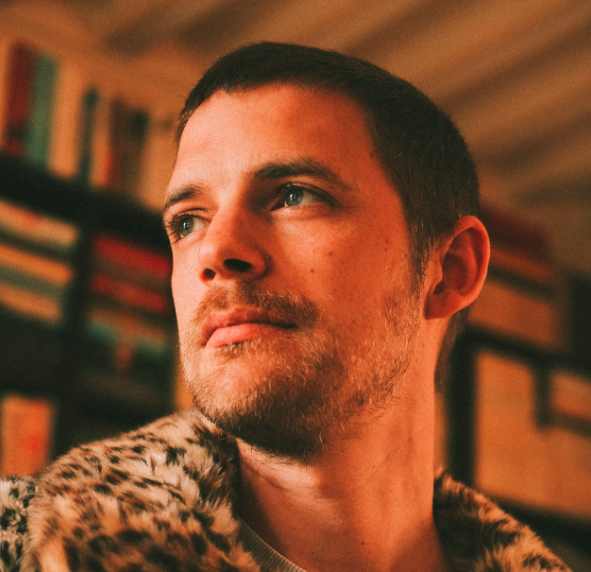
Florian Valerius
Natasha Atanasova
Petar Andonovski
Petar Andonovski was born in 1987, in Kumanovo, North Macedonia. He studied general and comparative literature at the University of Cyril and Methodius in Skopje. He has published one poetry collection and four novels, including The Summer You Weren’t There (2020, first Macedonian queer novel). In 2015, his novel The Body One Must Live In won the national award for Novel of the Year. Fear of Barbarians received the 2020 European Union Prize for Literature. His novels have been translated into: English, French, Serbian, Bulgarian.
Stephan Boltz
Lindita Arapi
Lindita Arapi, born in Albania, belongs to the circle of the so-called Albanian literary avant-garde. She publishes poetry collections, novels, essays and journalistic pieces. Her first novel, Schlüsselmädchen, was awarded the Book of the Year Award by Kult Academy in Albania and translated into German. Her most recent novel, Die Eingemauerte, is currently being translated into German and is forthcoming in Weidle Verlag. In addition to her writing, Lindita Arapi works as a freelance radio editor for Deutsche Welle (Bonn) and translator.
(c) picture alliance dpa Kay Nietfeld
Ralf Beste
Since February 2022 Ralf Beste is Head of the Department for Culture and Society at the Federal Foreign Office. Beste, born in 1966 in Witten, studied history in Bochum, Bielefeld and Baltimore. After an internship at Ruhr Nachrichten, he worked for more than 20 years as an editor (for example at SPIEGEL). In 2014, he became Deputy Head of the Planning Staff at the Federal Foreign Office, in 2016 Commissioner for Strategic Communication, and in 2017 Head of the Planning Staff. From 2019 to the beginning of 2022, Beste was Ambassador of the Federal Republic of Germany to the Republic of Austria.
Tomislav Marić
Ivana Bodrožić
Ivana Simić Bodrožić was born in 1982 in Vukovar. She studied Croatian Literature and Philosophy in Zagreb. She published her first volume of poetry in 2005; since then, her poetry has been printed in international literary magazines and anthologies. She has received several prizes, including the Kiklop Prize (2010) for her debut novel Hotel Zagorje. In 2020 she published her novel Sinovi, kćeri.
Dado Ljaljević
Stefan Bošković
Stefan Bošković was born in 1983 in Podgorica. His books include the short story collection Transparentne životinje (Transparent Animals, 2018) and the novel Šamaranje (Slap in the Face, 2014), awarded the 2014 prize for the best manuscript novel in Montenegro. In 2016, he won second prize at the Festival of European Short Stories for Fashion and Friends. Bošković has written scripts for a feature-length film, several short films, a sitcom series and a number of documentaries. Several of his short plays have been staged. His novel The Minister, for which he received the EU Literature Prize, is published in German translation in March 2022.
Cosmin Gogu
Lavinia Braniște
Lavinia Braniște was born in 1983, in Brăila. She studied foreign languages in Cluj-Napoca and Bucharest. Lavinia worked as a language teacher and translator and has translated over forty books from English, French and Spanish. She has published three novels so far: Interior Zero, Sonia ridică mâna and Mă găsești când vrei. Lavinia also writes children’s literature, some of her books were included in the White Ravens catalogue in 2017 and 2019, respectively. Lavinia currently lives in her hometown, Brăila, and dedicates herself to writing.
Tzveti Pavlova
Marianna Georgieva
Marianna Georgieva was born in 1986 in Ufa, Republic of Bashkortostan, in the Russian Federation. She studied law, creative writing as well as artistic psycho-social practices and psychodrama. She made her debut in 2014 with the novel Der Schuldner. 2016 saw the publication of her first poetry collection Exotische Arten, einen Vogel zu zerschneiden, followed by her second poetry collection ausweg in 2020. She is the editor of the online journal http://www.freepoetrysociety.com.
Svetla Stoyanova
Georgi Gospodinov
Georgi Gospodinov (1968) is a leading Bulgarian writer, the author of Natural Novel and The Physics of Sorrow, among many other books. He is winner of the Central European Angelus Award (2019), the Jan Michalski Prize (2016) and many other accolades. Recently, Gospodinov was awarded the Usedom Prize (Germany, 2021) for contribution to the European literature by a jury presided by Olga Tokarczuk. His latest novel, Time Shelter (Zeitzuflucht), was published in the spring of 2020 during the first lockdown and is forthcoming in more than fifteen countries, among them Germany (Aufbau), France (Gallimard), US (Liveright/Norton). In 2021, Time Shelter won the prestigious Italian award Premio Strega Europeo.
Alex Goldberg
Ismar Hačam
Ismar Hačam was born in 1991 in Livno (Bosnia and Herzegovina). He studied German language and literature in Sarajevo, Würzburg and Berlin. He currently lives in Berlin, where he organises, curates, and moderates literary events.
Velibor Bozović
Aleksandar Hemon
Aleksandar Hemon is the author of The Lazarus Project, which was a finalist for the 2008 National Book Award and National Book Critics Circle Award, and three collections of short stories: The Question of Bruno; Nowhere Man, which was also a finalist for the National Book Critics Circle Award; and Love and Obstacles. Born in Sarajevo, Hemon visited Chicago in 1992, intending to stay for a matter of months. While he was there, Sarajevo came under siege, and he was unable to return home. Hemon wrote his first story in English in 1995. He was awarded a Guggenheim Fellowship in 2003 and a “genius grant” from the MacArthur Foundation in 2004. Meine Eltern / Alles nicht dein Eigen was published in German translation in 2021. He lives in Chicago with his wife and daughter.
Daniele Croci
Nataša Kramberger
Nataša Kramberger, born 1983, is a writer, columnist, and organic farmer. She writes essays, reportages and commentaries for newspapers and magazines. For her debut novel Nebesa v robidah (2007) she received the European Union Prize for Literature (EUPL) in 2010. In 2011, she published Kaki vojaki (with Jana Kocjan), in 2014 an essay collection titled Brez zidu, and in 2016 Tujčice. Verfluchte Misteln (2021) was published in Slovene under the title Primerljivi hektarji in 2018. In summer she lives in Jurovski Dol, Slovenia, and runs a small biodynamic farm with the eco-art collective Zelena Centrala. In winter she lives in Berlin.
Ulli Idomeni
Ulrich Ladurner
Ulrich Ladurner, born in South Tyrol, is foreign editor of the Hamburg weekly DIE ZEIT since 1999. He reported from the former Yugoslavia, Afghanistan, Iran, Iraq and other crisis areas. Since 2016, he has been head of DIE ZEIT’s European office in Brussels. His latest book: Der Fall Italien. Wenn Gefühle die Politik beherrschen (Edition Körber, 2020).
Lulezim Haziri
Luljeta Lleshanaku
Luljeta Lleshanaku is an Albanian poet. She is the author of nine poetry collections in her language, which are widely translated and published in other languages. Her last book in English, Negative Space, was a winner of the “English PEN” award, a finalist for the “GRIFFIN International Poetry Prize 2019” in Canada and a finalist for “PEN America 2019”. She is also the author of two poetry collections in German language: Kinder der Nature published with the support of TRADUKI by Edition Korrespondenzen (2010), and Die Stadt der Äpfel, published in 2021 by Hanser Literaturverlage.
Stella Kager
Norbert Mappes-Niediek
Norbert Mappes-Niediek, born 1953, is a journalist and publicist, since 1991-2017 active as South-East Europe correspondent for German, Dutch, Swiss and Austrian newspapers as well as for Deutschlandfunk. Author of non-fiction books on the region, most recently Arme Roma, böse Zigeuner (Berlin 2012) und Europas geteilter Himmel (Berlin 2021).
Apollonia Theresa Bitzan
Barbi Marković
Barbi Marković, born 1980 in Belgrade, studied German and has lived in Vienna since 2006. In 2011/2012 she was a writer-in-residence in Graz. In 2009, Marković caused a sensation with the Thomas Bernhard remix novel Ausgehen. In 2016, the novel Superheldinnen was published, for which she received the Alpha Literary Award, the Adelbert von Chamisso Award and the Priessnitz Prize in 2019. In 2017, Barbi Marković read at the Bachmann Prize, in 2018 Superheldinnen was staged at the Volkstheater Wien. She also authored numerous short stories, plays and radio plays. Most recently Minihorror (2023) was published by Residenz Verlag.
Miran Juršič
Miha Mazzini
Miha Mazzini, born 1961, is a Slovenian writer, screenwriter and director. He has received several awards for his work; for his novel Otroštvo he received the Kresnik Prize for the best novel of the year. In 2021, his novel Du existierst nicht was published in German translation. It is about the state that takes away people’s rights and identity in a completely unlawful way. Further publications in German are in the works.
Miha Skrt
Pantaloons
Pantaloons trio is a community of three “clumsy fellows” as they like to call themselves. Luka Belič (saxophone), Aljaž Markežič (sousaphone), and David Nik Lipovac (drums) first emerged as part of the Chilli Brass Band in 2016. Their unique music style sits between electronic dance music and a hint of jazz, funk, breakbeat, dubstep, and much more. In 2020, they performed at the international music festival MENT in Ljubljana and the Liverpool Sound City Festival, supported by INES#talent 2020. In 2021 they performed at the Electric Castle festival in Romania and European Youth Event in France. They opened 2022 with concerts at A38 Hajó in Budapest and Eurosonic Noordeslag in the Netherlands. In May 2022 they will release their first album.
Marija Strajnic / Elle
Radmila Petrović
Radmila Petrović, born in 1996 in Užice/Serbia, is a poet and one of the most sought-after young voices from the former Yugoslavia. For her art she draws on her childhood memories spent in a village For urban audiences she opens up new perspectives on the human relationship to nature. Her themes also include family, village life, childhood traumas and female perspectives on the wars waged mostly by men.
Gezett
Jörg Plath
Jörg Plath, born in 1960, is literary editor of “Deutschlandfunk Kultur” and writes for the “Frankfurter Allgemeine Zeitung” and the “Neue Zürcher Zeitung”. He has been an editor, ghostwriter, and jury member (German Book Prize, International Literature Prize). He is currently on the jury of Weltempfänger.
CC BY-SA 4.0
Manuel Sarrazin
Manuel Sarrazin, born in Dortmund in 1982, studied history, Eastern European studies and law. First at Bremen University and then at Hamburg University. Since 1998, he is a member of the Alliance 90/The Greens GAL Hamburg. He served as a member of the Bundestag from 2008 to 2021. Since 2012, he is on the board of trustees of the Institute for European Politics (IEP); from 2014 till 2020 he was the vice-president of the Südosteuropa-Gesellschaft, since 2020 he is its president. Since 2019, he is the vice-president of Europäische Bewegung Deutschland e.V.. Since 2019 he also sits on the board of the Stiftung für polnisch-deutsche Zusammenarbeit (Foundation for Polish-German Cooperation). As of the start of 2022, Sarrazin is the special envoy of the Federal Government for the countries of the Western Balkans.
Marion Wittfeld
Tino Schlench
Tino Schlench runs Literaturpalast, a platform specialising in Eastern European literature (Instagram, website, podcast), and is now one of the most successful book bloggers in the German-speaking world. In 2020, Literaturpalast was awarded the Buchblog Award 2020. Once a month, in his podcast “Literaturpalast Audiospur“, Tino Schlench meets authors, translators, journalists and other people from literary life who deal with the literature of Southeast Europe in very different ways.
Ana Schnabl
Ana Schnabl (born 1985, Ljubljana) is a Slovene writer, editor and doctoral student. For her short-story collection Razvezani [Untangled] she received the Best Debut Prize in 2017 and the Croatian Edo Budiša Award in 2019. Her second book, the novel Mojstrovina [Masterpiece] was published in 2020. The German translation is forthcoming in March 2022. She has already begun work on her third book, a crime novel. In her doctoral work, she focuses on feminist autobiographies. She lives in Kamnik, northern Slovenia.
Anna Kurki
Pajtim Statovci
Pajtim Statovci was born in Kosovo to Albanian parents in 1990. His family fled the Yugoslav wars and moved to Finland when he was two years old. He holds an MA in comparative literature and is a PhD candidate at the University of Helsinki. His first book, My Cat Yugoslavia, won the Helsingin Sanomat Literature Prize for best debut novel; his second novel, Crossing, was a finalist for the National Book Award and was published in German translation under the title Grenzgänge in 2021; and Bolla was awarded Finland’s highest literary honor, the Finlandia Prize. In 2018, he received the Helsinki Writer of the Year Award.
Dženat Dreković
Hana Stojić
Hana Stojić, born in Sarajevo in 1982, studied Translation Studies at Vienna University and works as a translator and cultural mediator. For her first translation into Bosnian, Elfriede Jelinek’s Die Liebhaberinnen, she received a translation prize awarded by the Austrian Federal Chancellery. Since 2008, she was working for Traduki, helming the project from 2014 till the end of 2021.
Borislav Brezo
Tanja Stupar Trifunović
Tanja Stupar-Trifunović was born in Zadar in 1977 and is a graduate of the University of Banja Luka. Stupar-Trifunović lives in Banja Luka and works as the Editor of Putevi, a literary magazine. For her debut novel Satovi u majčinoj sobi (Die Uhren in Mutters Zimmer) she was awarded the EU Prize for Literature in 2016. The novel was also nominated for the prestigious NIN Award.
Natalia Rusu
Tatiana Țîbuleac
Tatiana Țîbuleac was born in 1978 in Chișinău, Republic of Moldova, and has Moldovan and Romanian nationality. She holds a Degree in Journalism. She made her debut as a writer in 2014 with a collection of short stories Fabule Moderne – Modern Tales. In 2017, her first novel appeared: Vara în care mama a avut ochii verzi. It was awarded the prize of the Writer´s Union of Moldova, the prize of the Observator Cultural literary magazine in Bucharest and the Lyceum prize at the FILIT festival in Iași. In Spain it was awarded the Booksellers Recommend 2020 Prize for Fiction and Calamo Prize. Grădina de sticlă is her second novel and won 2019 EU Prize for Literature. Her books are translated into ten languages. Since 2008 she has been living in Paris.
Nini Tschavoll
Annemarie Türk
Annemarie Türk, born in 1953 in Klagenfurt, studied history, political science and Slovenian language as well as cultural management and sponsoring. From 1992 to 2013, she was head of cultural promotion and sponsorship at KulturKontakt Austria and was responsible for cultural cooperation with and in 15 countries in Eastern and Southeast Europe. Since April 2013 she has been working as a freelance curator and lecturer for various educational institutions, cultural organisations and universities.
Team US AND THEM
Curator
Hana Stojić
Project Manager
Angelika Salvisberg
Coordination
Barbara Anderlič
Marija Karaklajić
Andrej Lovšin
Radmila Radovanović
Ljubica Šljukić
Web design
Barbara Anderlič, Matthew Morete
Illustrations | Animation
Lea Zupančič
PR
projekt2508
Digital events
Digital concept
Anna Götte, Hana Stojić
Concept | Director & cinematographer
Ivan Marković
Production
Ljubica Šljukić
Sound
Katharina Hauke
Tech | Editing | Post-production
Berislav Župarić
Music
Pantaloons
Balkan Film Week
Curator
Marija Katalinić
Project Manager
Barbara Anderlič
Coordination
Sebastian Gebeler
Graphic design
Janett Andrejewski
Bob Sala
Florian Valerius
Valerius has been a bookseller in Trier for 15 years, currently in an indie bookshop. Before that he was for many years the manager of the university bookshop. Florian Valerius, born in 1982, is also one of the most successful German-language bookstagrammers. Under @literarischernerd, he presents two to three new novels and illustrated books per week and shares with his online community of well over 25,000 followers his experiences as a reader and bookseller. In addition, he regularly holds live talks with people from the book industry.
US AND THEM – Of Bonds and Otherness
Hana StojićProgramme CuratorDženat Dreković
COMMON GROUND. Literature from Southeast Europe is in its third year. In 2020 and 2021 we covered topics, which moved authors personally. We questioned how society and politics deal with the challenges of the past, present, and future, and showed what sort of realities authors give a literary voice to.
This year’s Common Ground programme is titled: US AND THEM.
In our third year as the Region in Focus at the Leipzig Book Fair, we raise the question of differences an things in common, of elements that bind us together and cut us off from another, of us, ourselves, and the other. Is the Southeast of Europe really that different from our surroundings, from what is familiar to us? What are imagined, and what, real distances? How big are the differences between us and them, between the Here and the There? Is a differentiation of the world into “East” and “West” still (or again!) topical?
There is nothing wrong with wanting to put order, structure, outlines and boundaries into the chaos that is one’s existence. This is how one’s own identity takes shape and is moulded, this is how one can reappraise and reassess it. Problems arise, when these assessments and one’s own existence is valued higher and as the proper way in respect to the lives of others – when we take on a position of superiority towards the other. And it does not matter from what direction we look at them.
US AND THEM brings together authors in whose books the characters are adamant about going their own path in life. They are filled with stories in which children refuse to take on their prescribed roles and question assumed designations and stances. We present books about people, who have to suffer lasting consequences because of decisions taken by shortsighted people in power. But these are also books about dreams, hopes, and fears – familiar to each and every one who tries to master life.
We invite you to listen to the voices from Southeast Europe. So „THEM“ may become a part of „US“ – and vice versa.
US AND THEM – Of Bonds and Otherness
Hana StojićProgramme CuratorDženat Dreković
COMMON GROUND. Literature from Southeast Europe is in its third year. In 2020 and 2021 we covered topics, which moved authors personally. We questioned how society and politics deal with the challenges of the past, present, and future, and showed what sort of realities authors give a literary voice to.
This year’s Common Ground programme is titled: US AND THEM.
In our third year as the Region in Focus at the Leipzig Book Fair, we raise the question of differences an things in common, of elements that bind us together and cut us off from another, of us, ourselves, and the other. Is the Southeast of Europe really that different from our surroundings, from what is familiar to us? What are imagined, and what, real distances? How big are the differences between us and them, between the Here and the There? Is a differentiation of the world into “East” and “West” still (or again!) topical?
There is nothing wrong with wanting to put order, structure, outlines and boundaries into the chaos that is one’s existence. This is how one’s own identity takes shape and is moulded, this is how one can reappraise and reassess it. Problems arise, when these assessments and one’s own existence is valued higher and as the proper way in respect to the lives of others – when we take on a position of superiority towards the other. And it does not matter from what direction we look at them.
US AND THEM brings together authors in whose books the characters are adamant about going their own path in life. They are filled with stories in which children refuse to take on their prescribed roles and question assumed designations and stances. We present books about people, who have to suffer lasting consequences because of decisions taken by shortsighted people in power. But these are also books about dreams, hopes, and fears – familiar to each and every one who tries to master life.
We invite you to listen to the voices from Southeast Europe. So „THEM“ may become a part of „US“ – and vice versa.